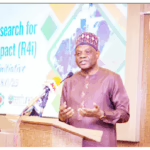Why Nigeria’s Economic Transformation Demands Immediate Action
Nigeria frequently highlights its vast population, exceeding 220 million, as a key attraction for international investors. However, relying solely on demographic size as a catalyst for economic growth is a misconception that overlooks critical structural challenges.
Population Size: An Opportunity, Not a Guarantee
While a large population can provide a substantial labor force and consumer market, it does not automatically translate into economic prosperity. Without effective policies and reforms, the potential of Nigeria’s demographic dividend remains untapped. For instance, despite its population, Nigeria’s unemployment rate stood at approximately 33% in 2023, underscoring the disconnect between population and economic opportunity.
Structural Reforms: The Cornerstone of Sustainable Growth
To harness its demographic advantage, Nigeria must prioritize comprehensive economic reforms. This includes improving infrastructure, enhancing the ease of doing business, and diversifying the economy beyond oil dependency. Countries like Vietnam have demonstrated how strategic reforms can convert population size into robust economic growth, with Vietnam’s GDP growth averaging over 6% annually in recent years.
Current Economic Challenges and the Path Forward
Nigeria faces pressing issues such as inflation, currency instability, and inadequate power supply, which hinder investment and business expansion. Addressing these challenges requires urgent policy interventions and a commitment to transparency and governance reforms. For example, recent initiatives to improve digital infrastructure and financial inclusion show promise but need scaling to impact the broader economy.
Conclusion: Seizing the Moment for Economic Renewal
In summary, Nigeria’s vast population is a valuable asset, but without swift and decisive economic reforms, it risks becoming a demographic burden rather than a growth engine. Policymakers must act with urgency to implement structural changes that will unlock Nigeria’s full economic potential and attract sustainable investment.























0 Comments